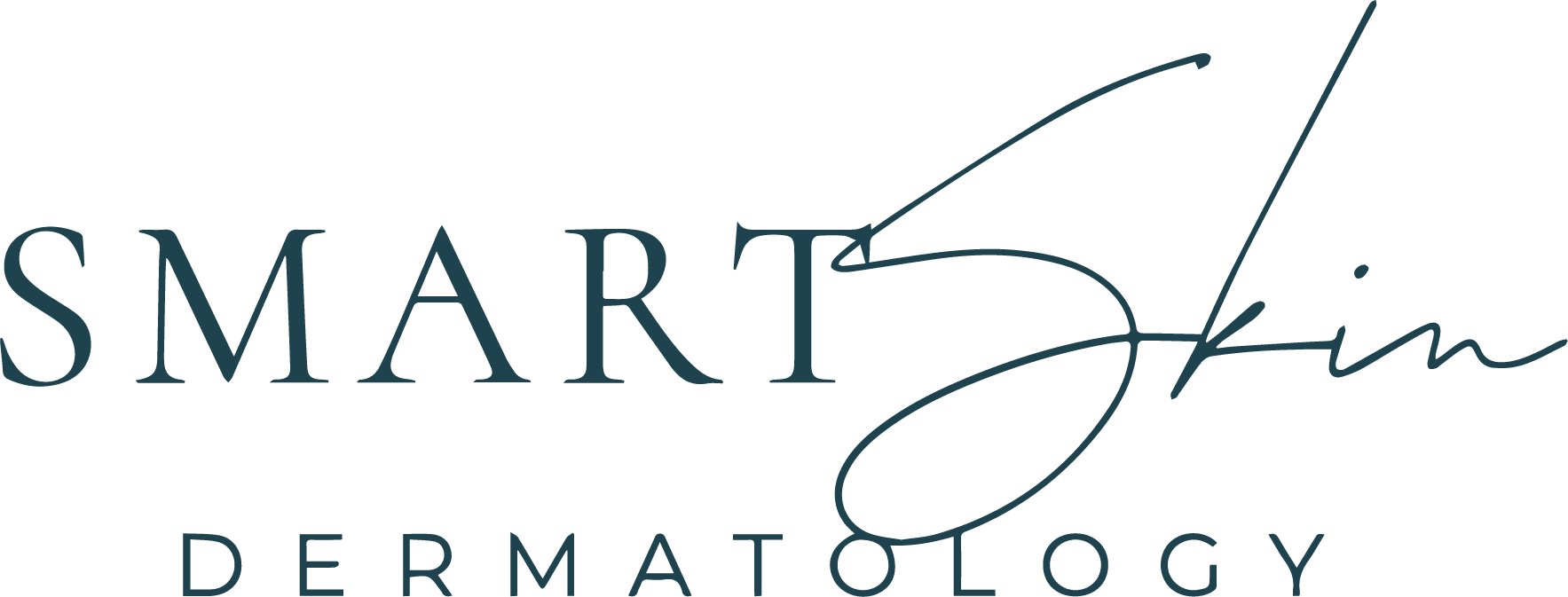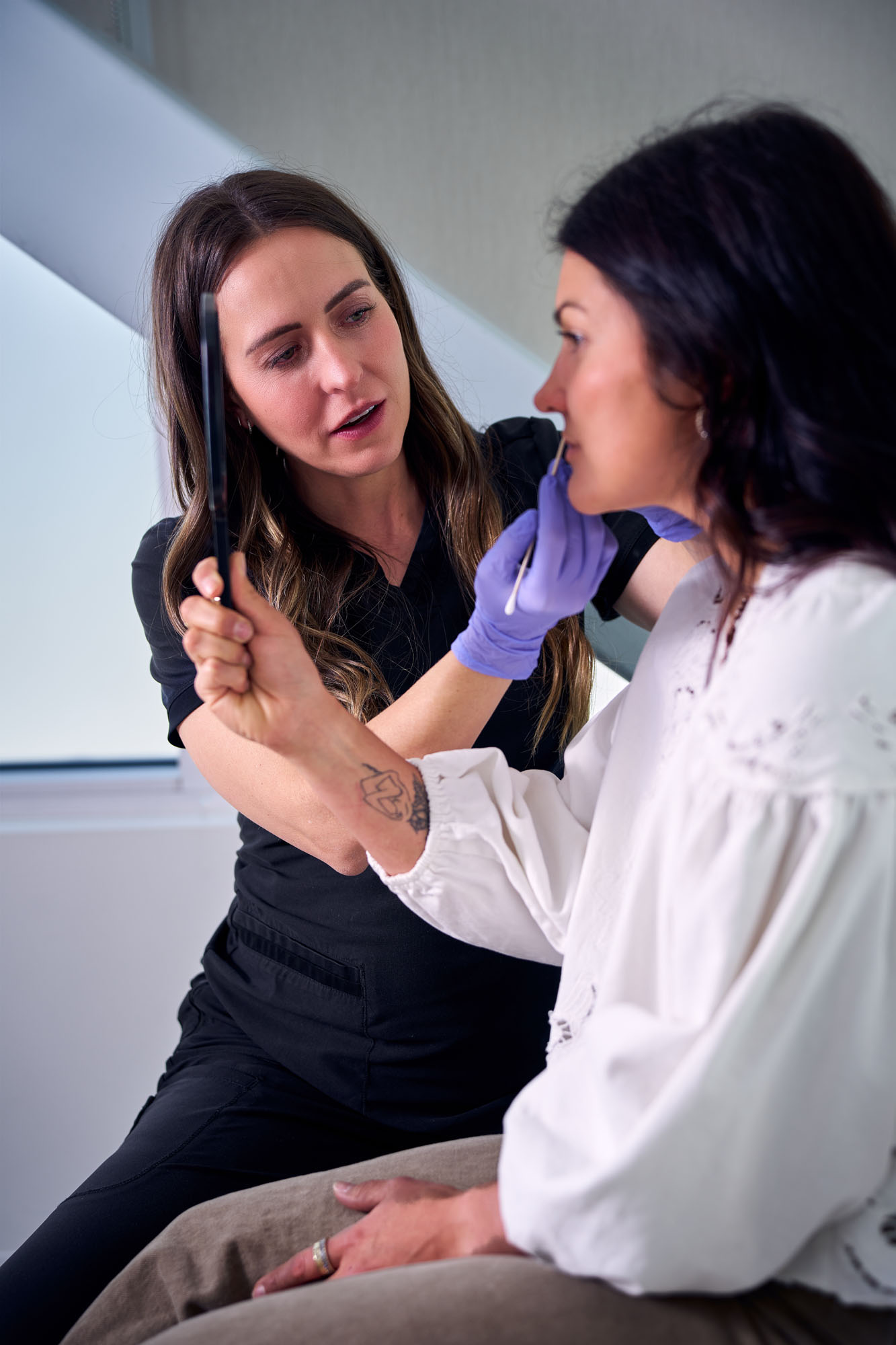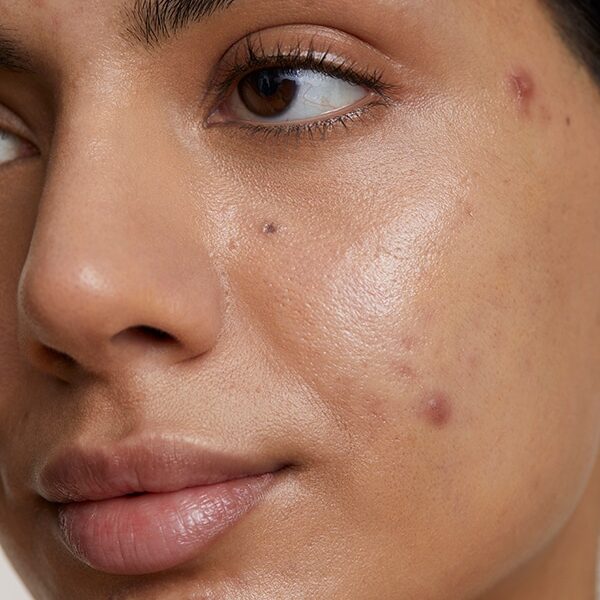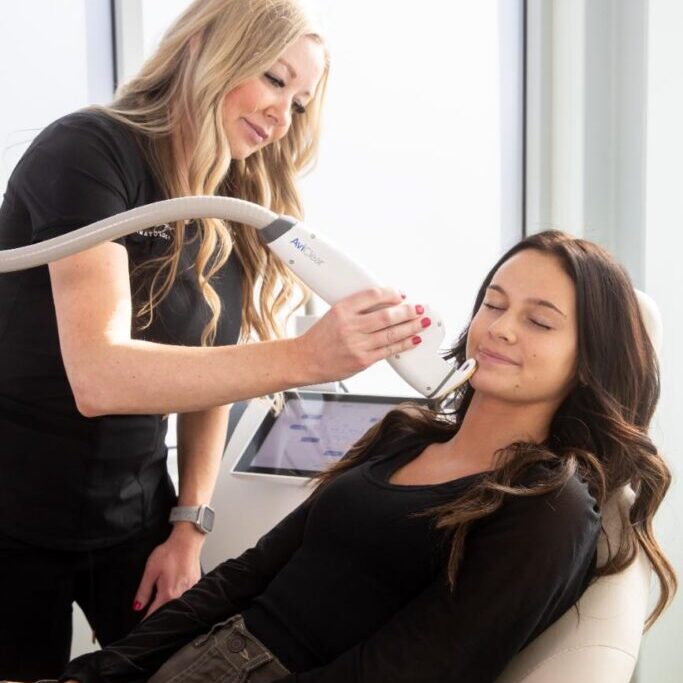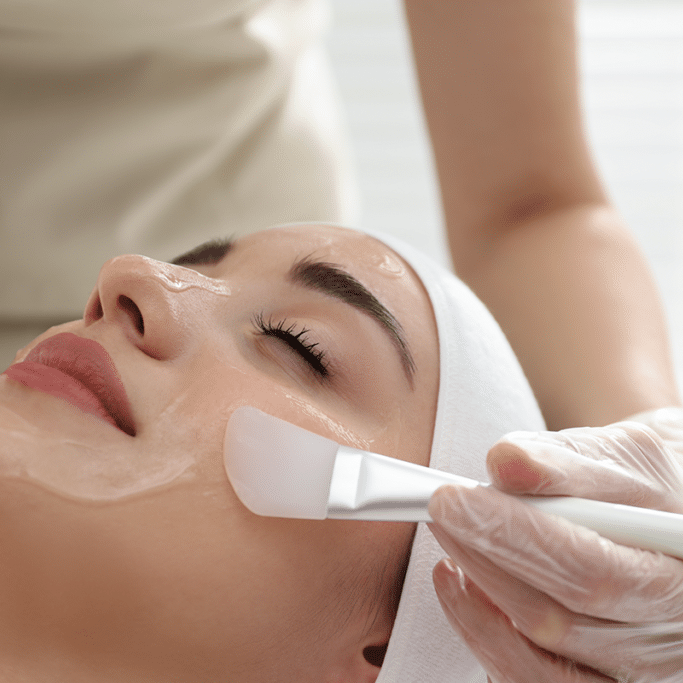Acne Treatment in Lehi, Utah
Schedule Your Acne Appointment Today
What Causes Acne?
Follicular hyperkeratinization
Follicular hyperkeratinization
This fancy term simply describes the abnormal clumping of skin cells lining the pores, forming a plug on the surface and leading to the formation of microcomedones, the precursors to acne lesions.
Sebum overload
Sebum Overload
Androgens, our sex hormones, are to blame for this one. They stimulate the growth and activity of oil glands, leading to excessive sebum production.
cutibacterium
cutibacterium
This bacteria thrives within the hair follicle-oil gland unit, where it orchestrates a complex dance of mischief. It produces enzymes that rupture comedone walls, triggering both inflammatory and non-inflammatory immune responses, leading to further inflammation and stickier skin cells.
Inflammation
Inflammation
The degree of inflammation, often influenced by genetics, plays a pivotal role in determining the severity of acne and the formation of scars.
What can trigger an acne flare?
Several additional factors can influence acne, including:
-
Genetics
Familial predisposition can significantly increase your risk of developing acne.
-
Diet
Certain foods, like dairy and high-glycemic index foods, can trigger or worsen acne for some individuals.
-
Menstruation
Hormonal fluctuations during the menstrual cycle can contribute to acne flares.
-
Stress
This modern-day plague can exacerbate acne by triggering the release of stress hormones that affect oil production and inflammation.
-
Medications
Some medications, such as corticosteroids and lithium, can list acne as a potential side effect. Similarly, medications that affect hormone levels can flare acne.
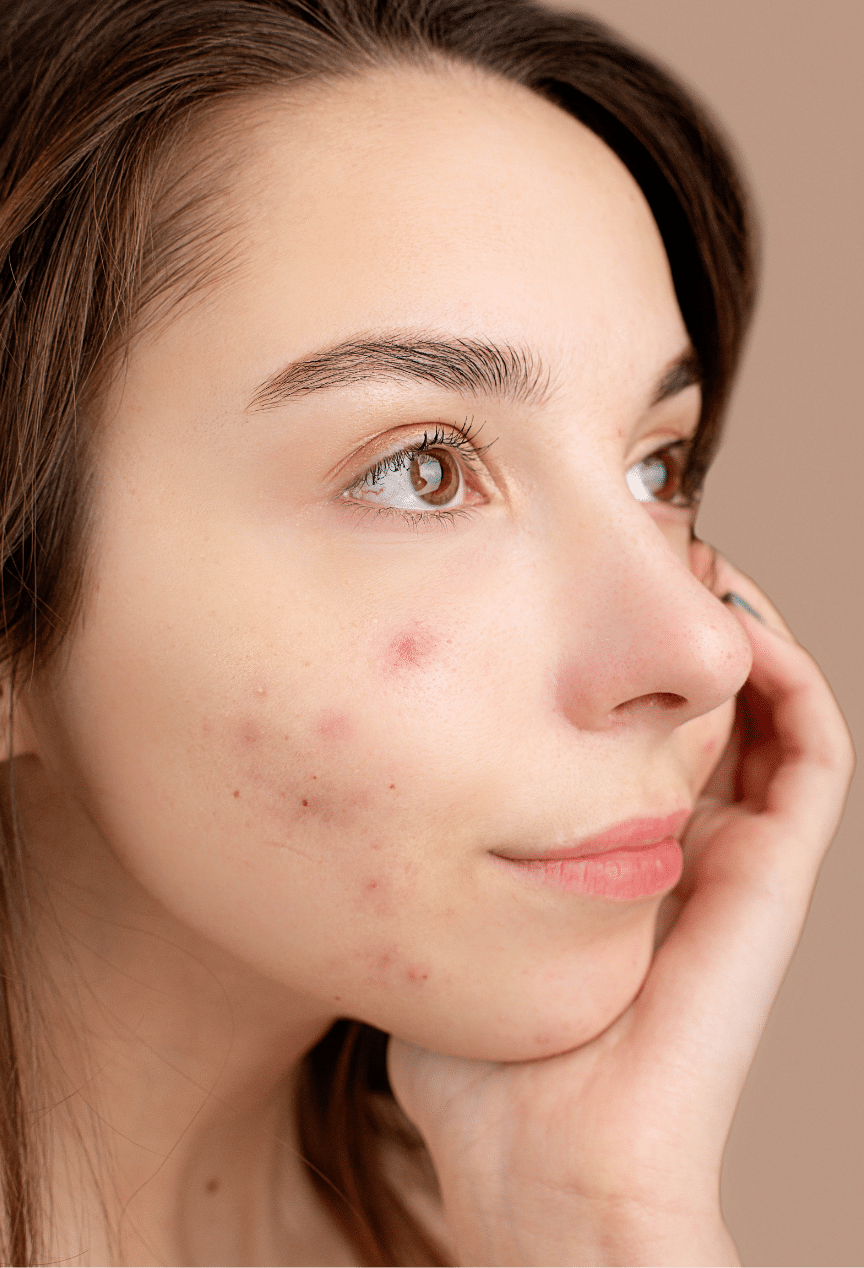
Acne Treatment Options
Over the counter topicals
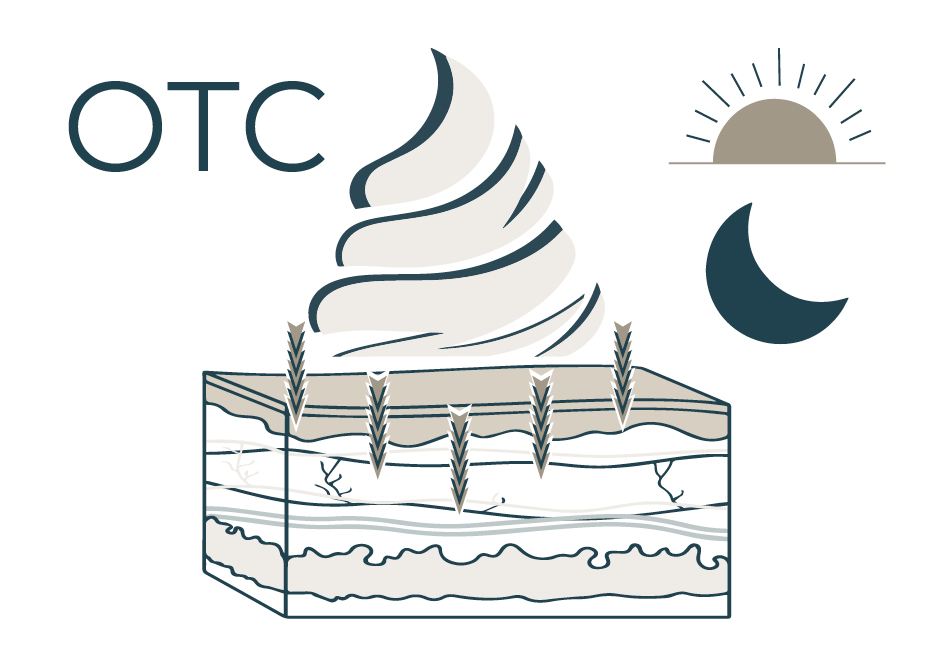
Ideal Candidate
Treatment details
Prescription topical medications
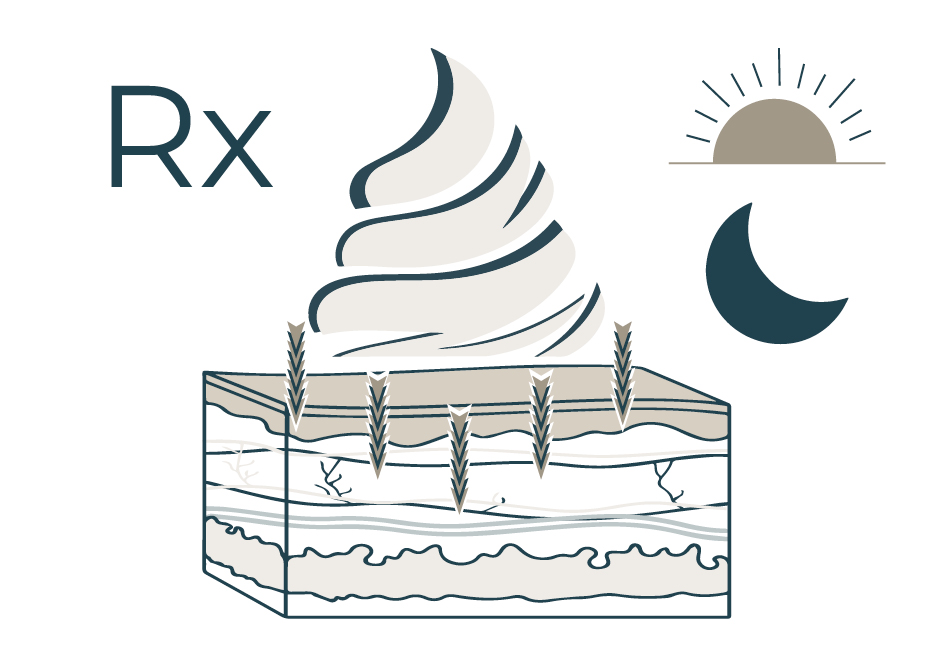
Ideal Candidate
Treatment details
Oral antibiotics
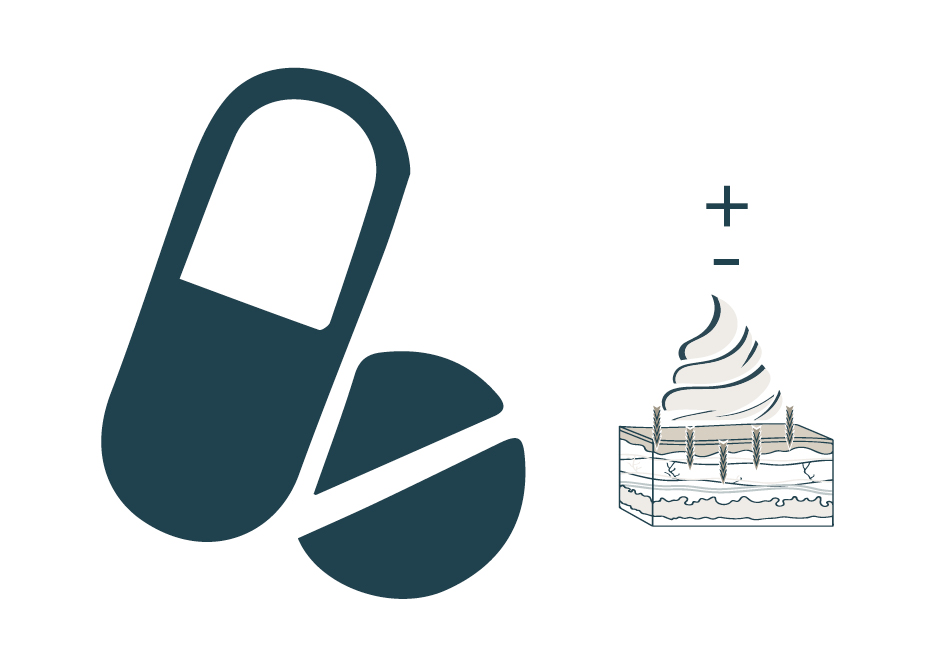
Ideal Candidate
Treatment details
Oral hormonal medications
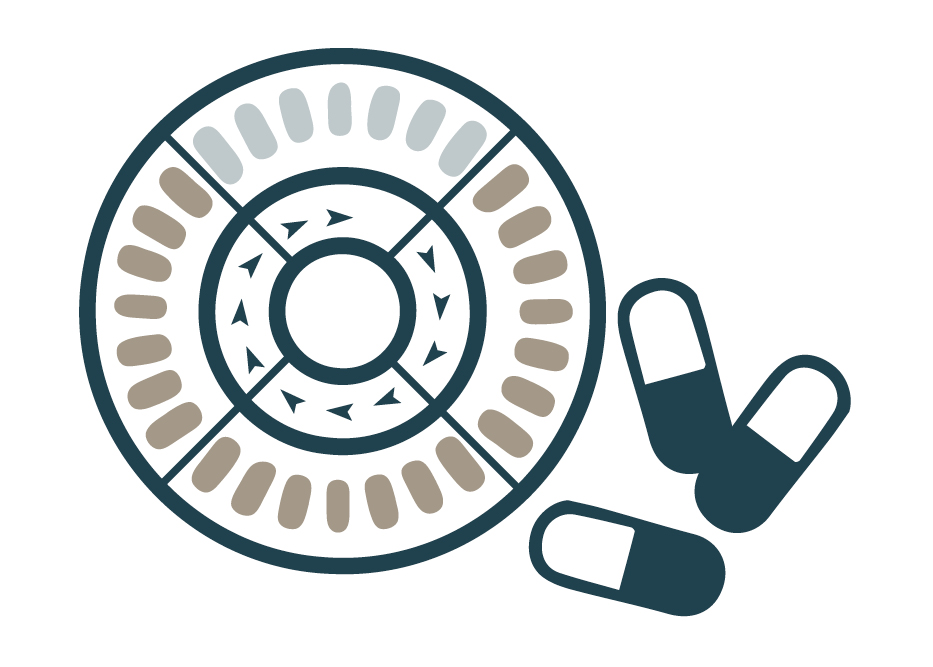
Ideal Candidate
Treatment details
Isotretinoin "Accutane" therapy
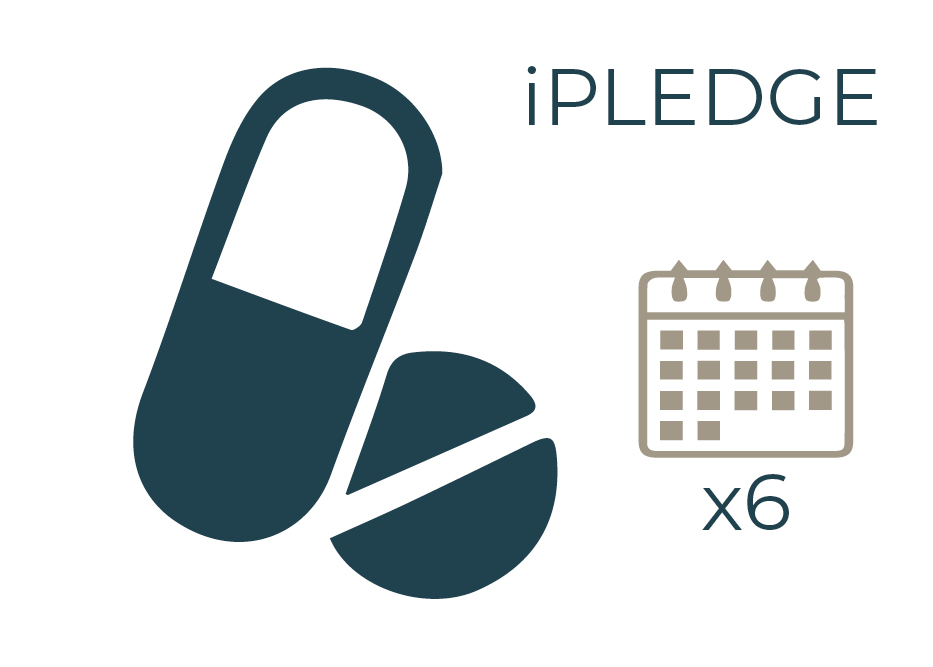
Ideal Candidate
Treatment details
Aviclear laser
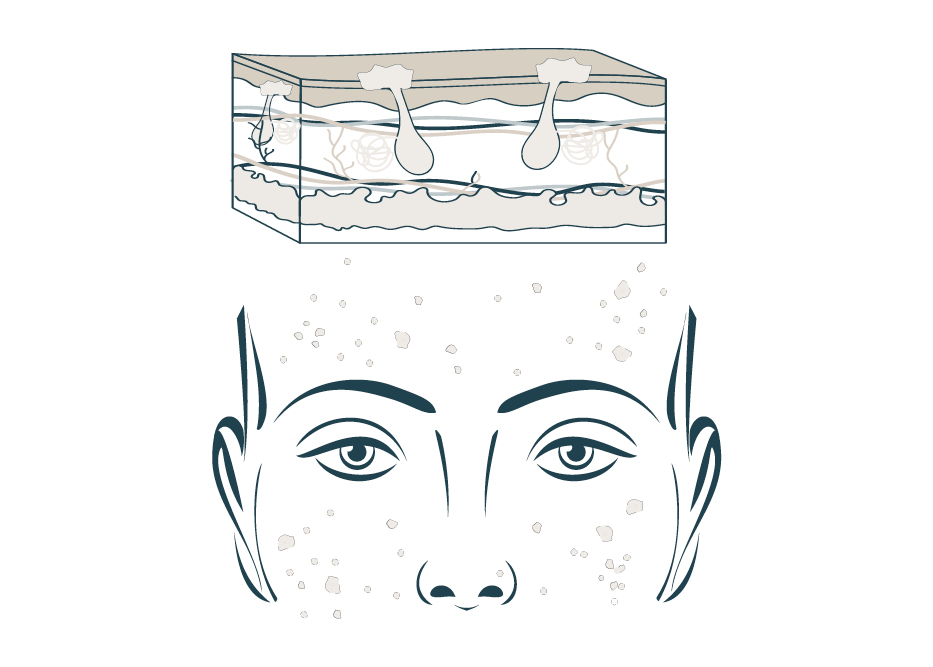
Ideal Candidate
Treatment details
The Aviclear laser targets and eliminates oil glands. Treatment is typically performed on the face but may also be done on the back or shoulders. Treatment is always done in a series of 3 treatments. Read more about Aviclear laser here. Other cosmetic treatments may also help with acne but are less effective especially for severe acne. These include chemical peels and hydrafacials among others.
Extractions "derm clean up"
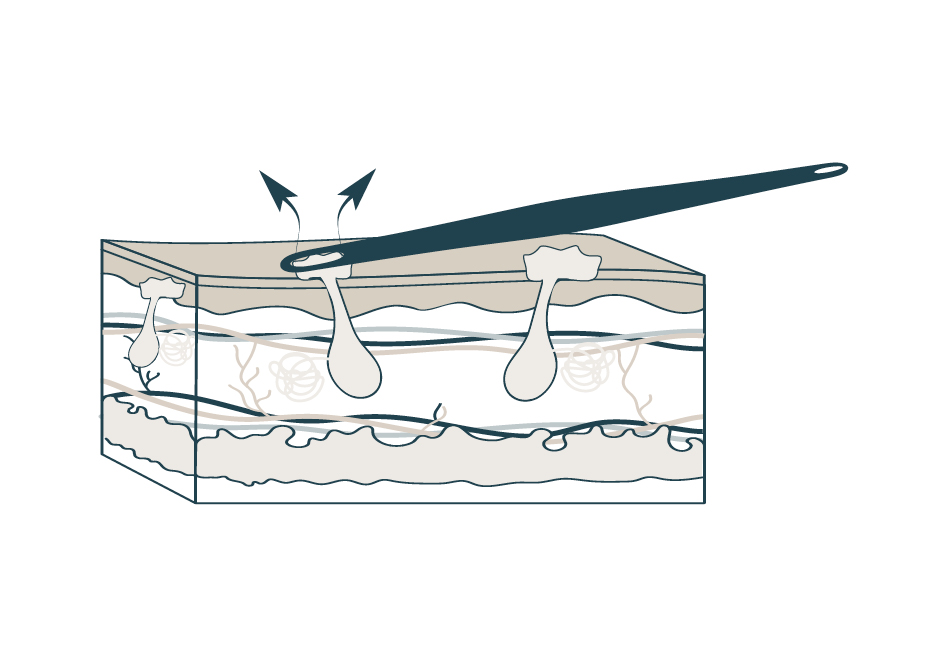
Ideal Candidate
Treatment details
Extractions should only be done by a trained professional and only after being recommended by a dermatologist. Popping acne usually spreads bacteria and only worsens acne. In some unique cases, extractions are recommended. special tools are used to gently remove build up in oil in a controlled setting to minimize chance of scarring. More info on Derm Clean Ups here.
Steroid "kenalog" injections
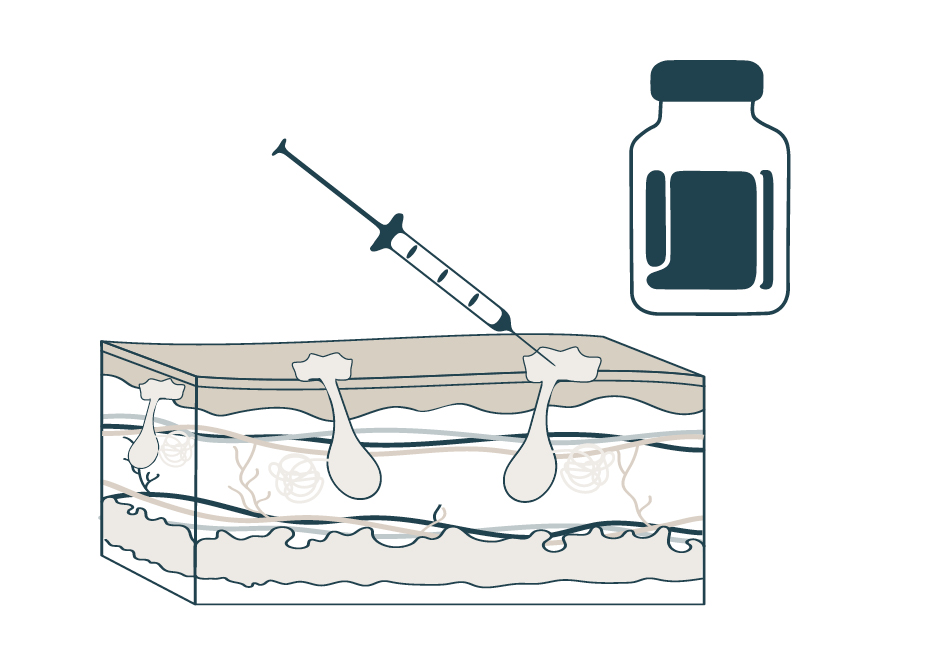
Ideal Candidate
Treatment details
Steroid injections decrease inflammation and shrink the acne cyst. This can provide some relief from painful acne lesions. Triamcinolone, or trade name Kenalog, is the steroid used. The concern with doing this too frequently is that there is a risk of devoting the skin where an injection is performed. It also does not address the source of the acne itself.
Acne medications - What do they do?
There are a lot of options. Here is more info on the major ones we recommend.
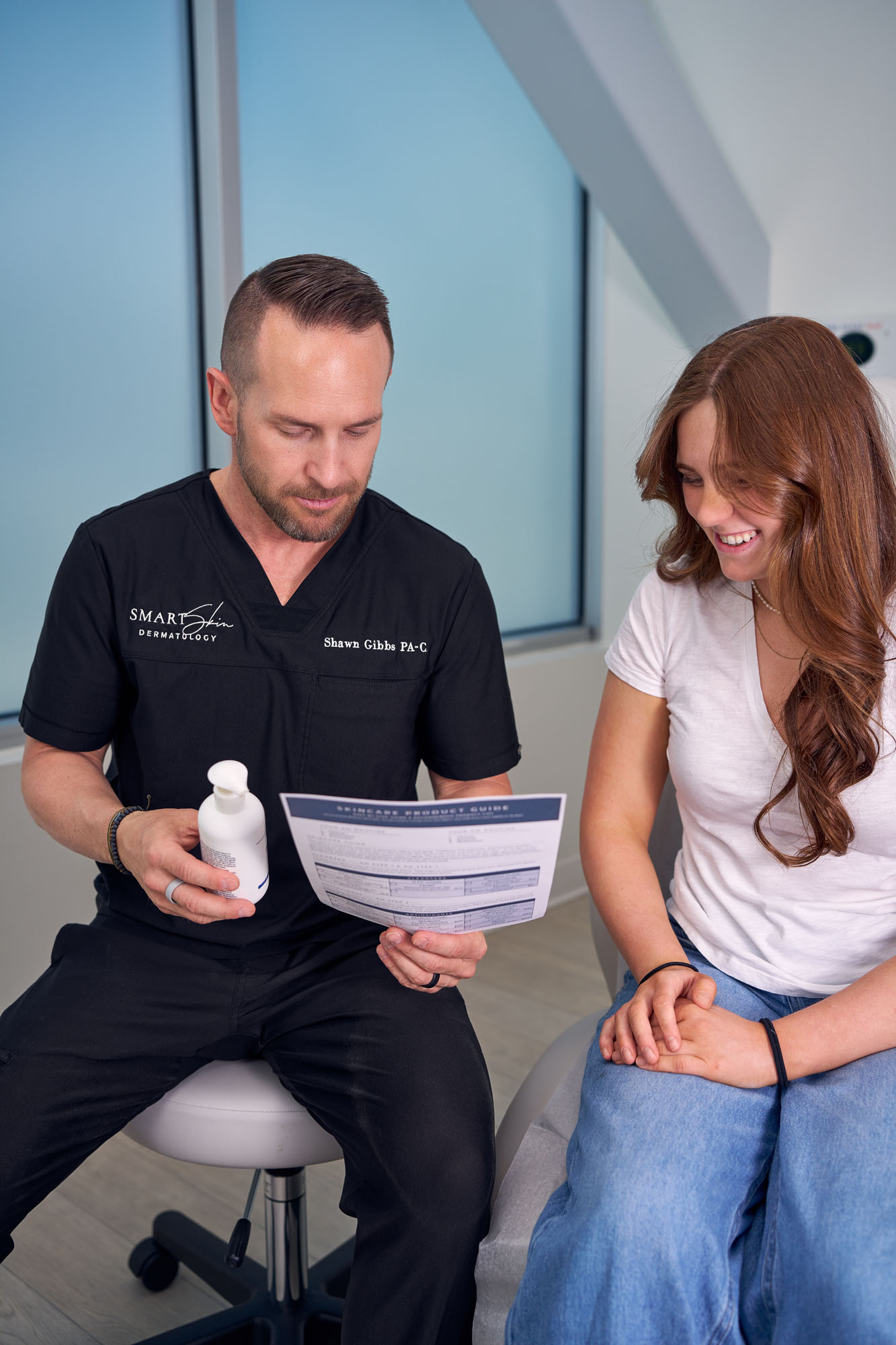
Types of acne
Acne Vulgaris: This is the general term for common acne and encompasses all the types listed below. Individuals can experience a combination of different lesion types at the same time.
-
Pustular Acne:
Pustules are similar to papules but contain pus, which is a mixture of inflammatory cells and bacteria. They appear as small, raised bumps that are typically red at the base and have a yellowish or whitish center. Pustules are also a form of inflammatory acne.
-
Papular Acne:
This type is characterized by small, raised, red or pink bumps on the skin. These papules are inflamed lesions and are often tender to the touch. They occur when the walls of the hair follicle rupture, allowing sebum, bacteria, and dead skin cells to irritate the surrounding skin.
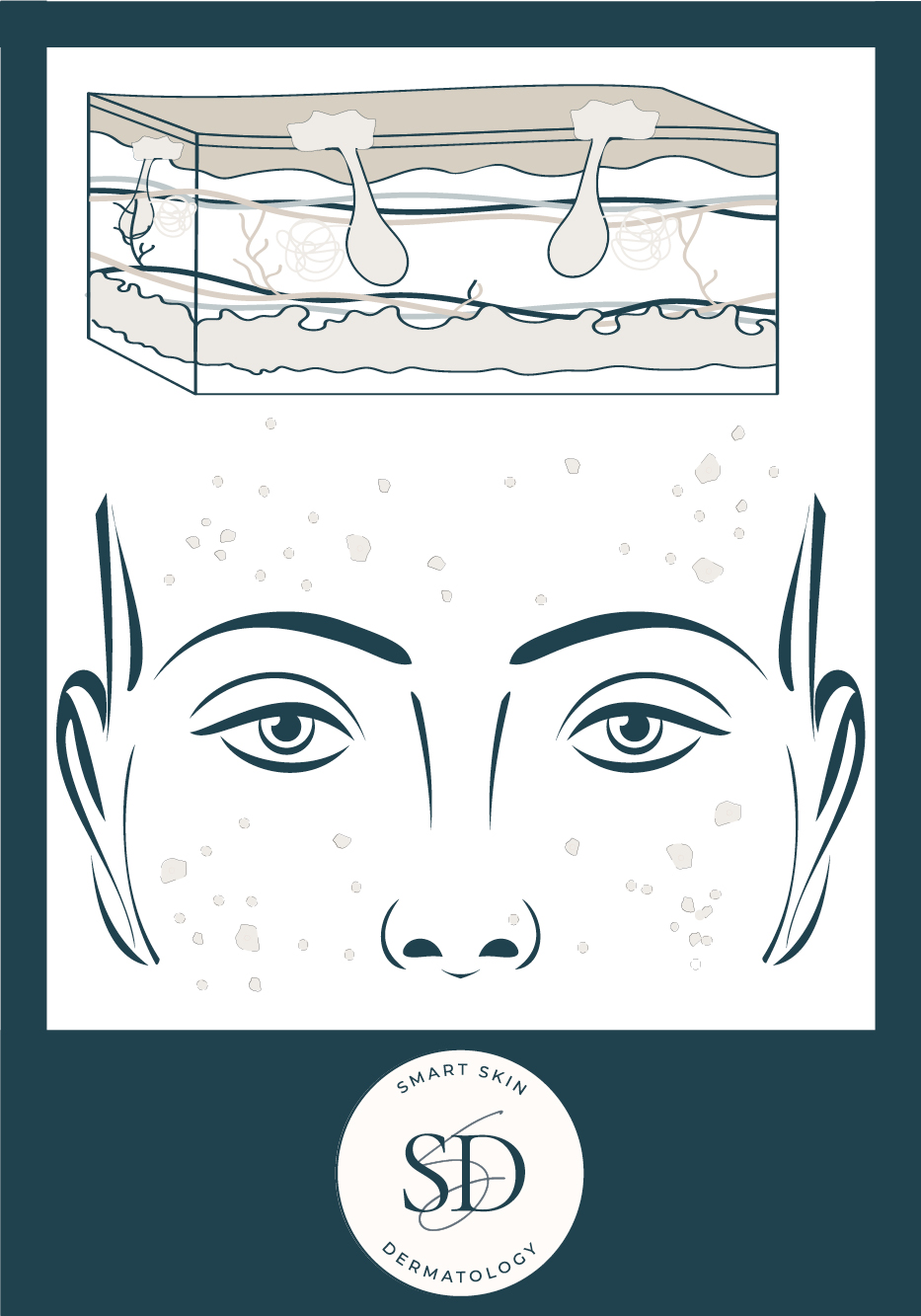
-
Comedonal Acne:
This is considered mild acne and is characterized primarily by comedones, which are clogged hair follicles. There are two main types of comedones:
- Open Comedones (Blackheads): These appear as small, dark spots on the skin's surface. The darkness is due to the oxidation of sebum and melanin (skin pigment) upon exposure to air, not dirt.
- Closed Comedones (Whiteheads): These are small, flesh-colored or whitish bumps that occur when the hair follicle is completely blocked beneath the skin's surface.
-
Nodular Acne:
Nodules are large, firm, often painful lumps that develop deep beneath the skin's surface. They are a more severe form of inflammatory acne and result from significant inflammation and infection deep within the hair follicle. Nodules can persist for weeks or months and often lead to scarring.
-
Cystic Acne:
This is the most severe form of acne. Cysts are large, pus-filled lesions that are deep, painful, and often feel soft or fluid-filled. Like nodules, they result from a severe inflammatory response within the hair follicle. Cystic acne frequently leads to scarring and can be challenging to treat.
Types of Acne Visits
Seeking professional dermatological care early is paramount in managing acne effectively. Early intervention can prevent or minimize unwanted complications, particularly scarring, which can be challenging to treat. We will create of a personalized treatment plan tailored to your unique needs and helps you achieve clear, confident skin.
Acne FAQ
Does acne go away with age?
On average, Yes. Many people will experience a natural resolution of their acne as they age out of their teenage years, it's not a universal guarantee.
Acne often shows significant improvement as individuals transition from adolescence into adulthood. This is largely due to the hormonal fluctuations that are a primary driver of acne development during the teenage years typically stabilizing. As hormone levels, particularly androgens, decrease and become more balanced, the overproduction of sebum (oil) by the skin's sebaceous glands tends to lessen. This reduction in oil, along with a potential decrease in skin cell stickiness, can lead to fewer clogged pores and subsequent breakouts.
However, it's important to understand that acne can persist well into adulthood for many individuals. Adult-onset acne is a recognized condition and can be influenced by a variety of factors beyond just typical adolescent hormonal shifts. These factors can include ongoing hormonal imbalances (such as in women due to menstrual cycles, pregnancy, or polycystic ovary syndrome), stress, certain medications, genetics, and even lifestyle choices.
